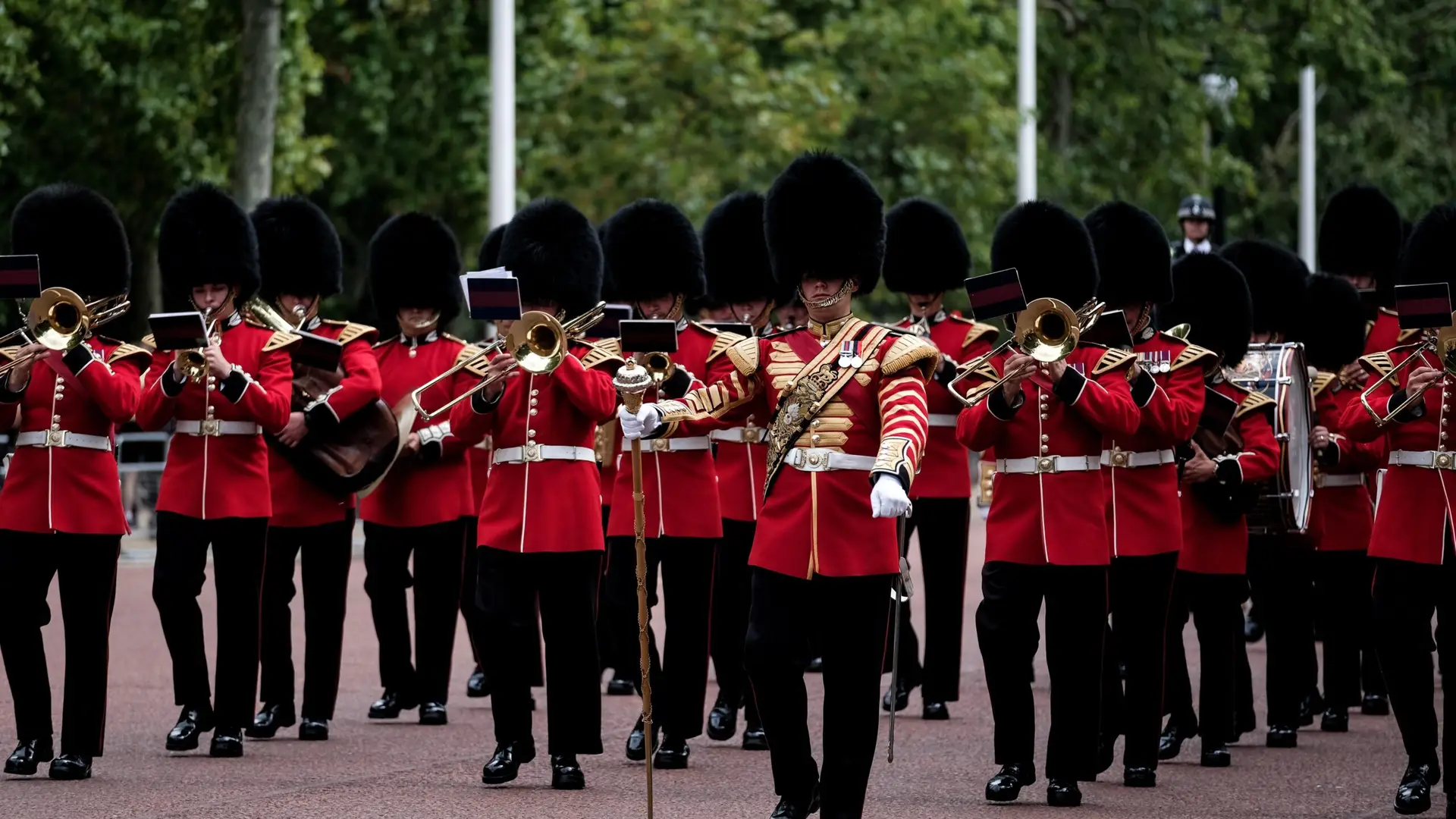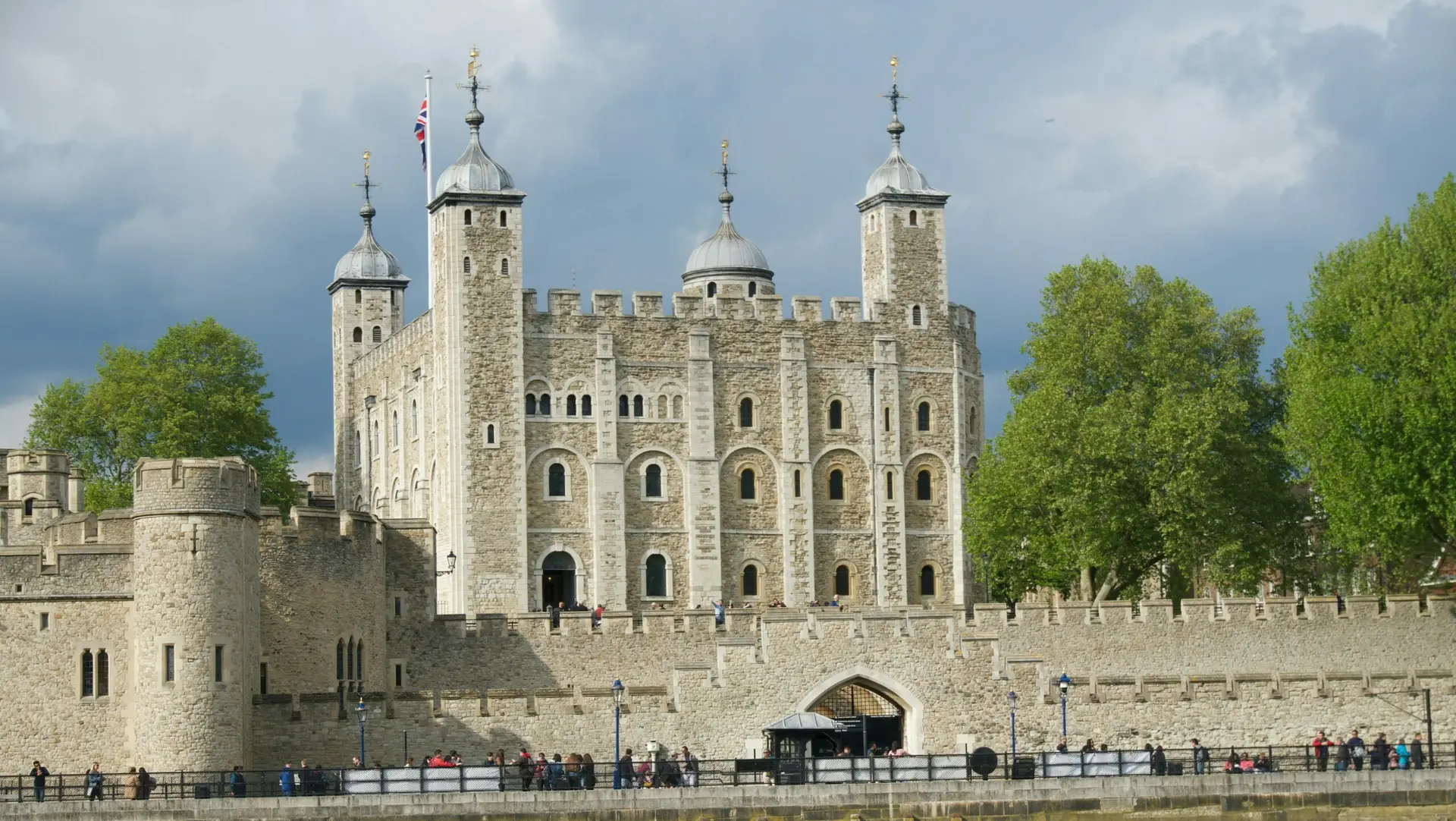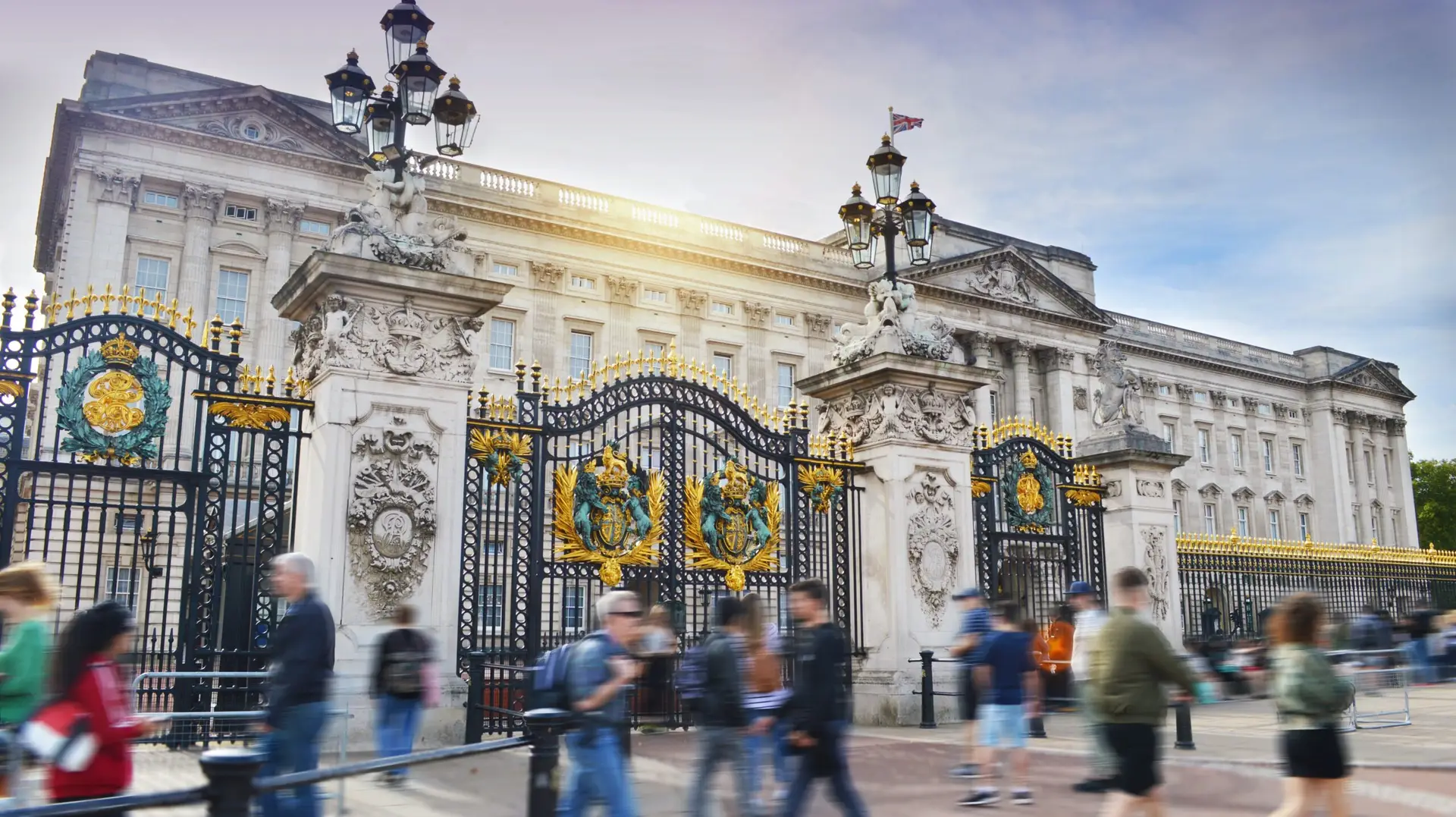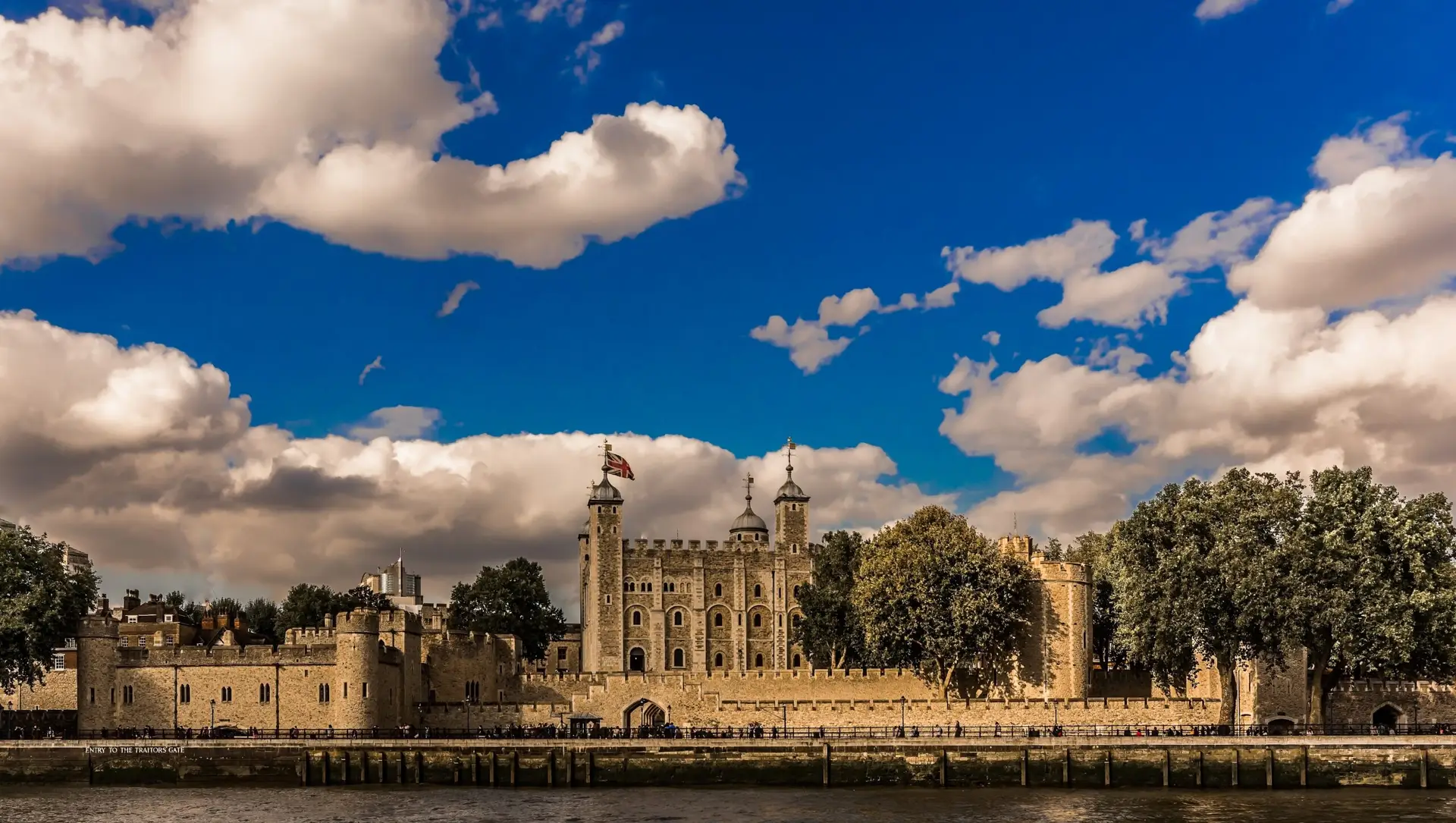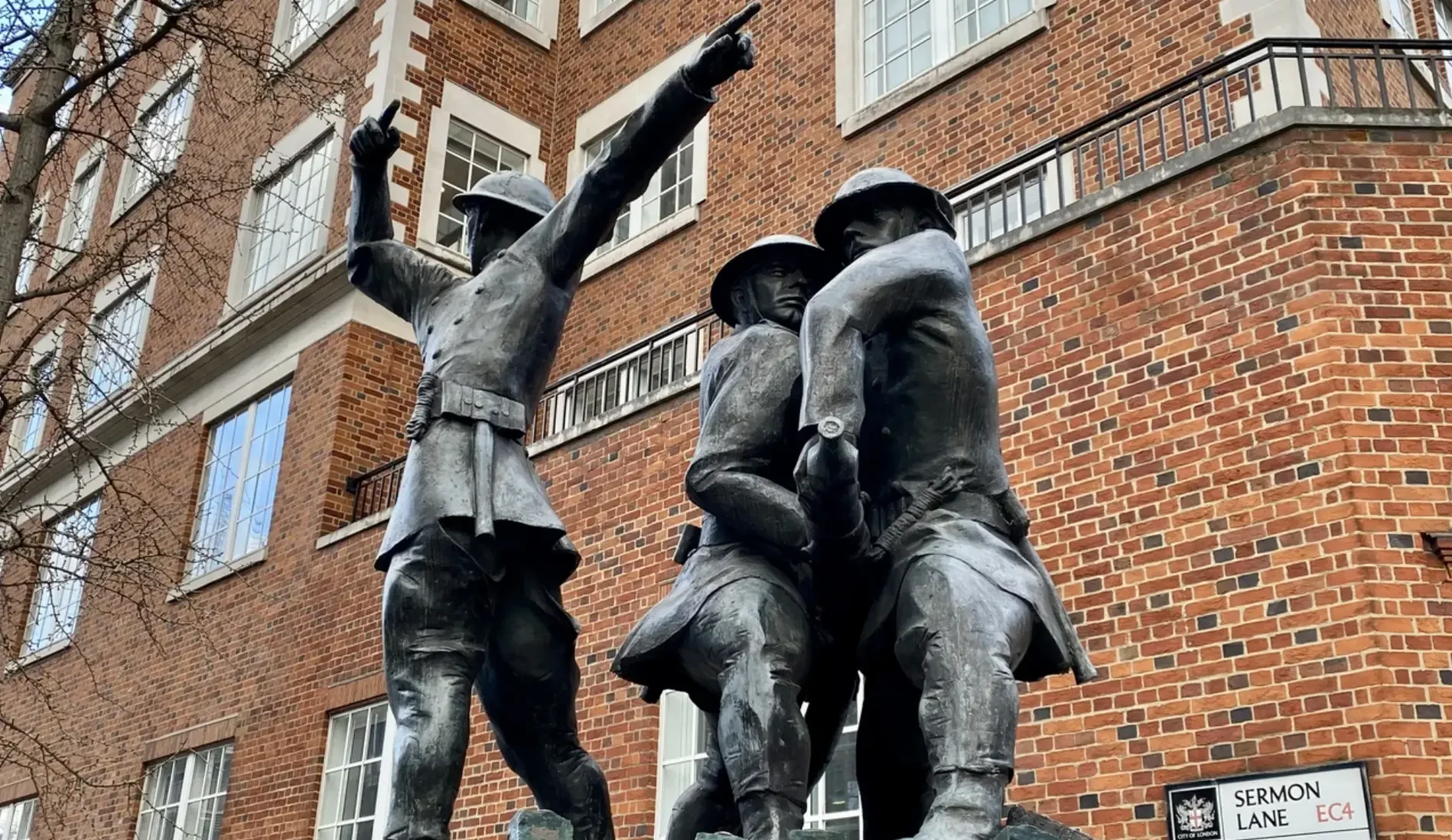London Changing of the Guard - everything you need to know
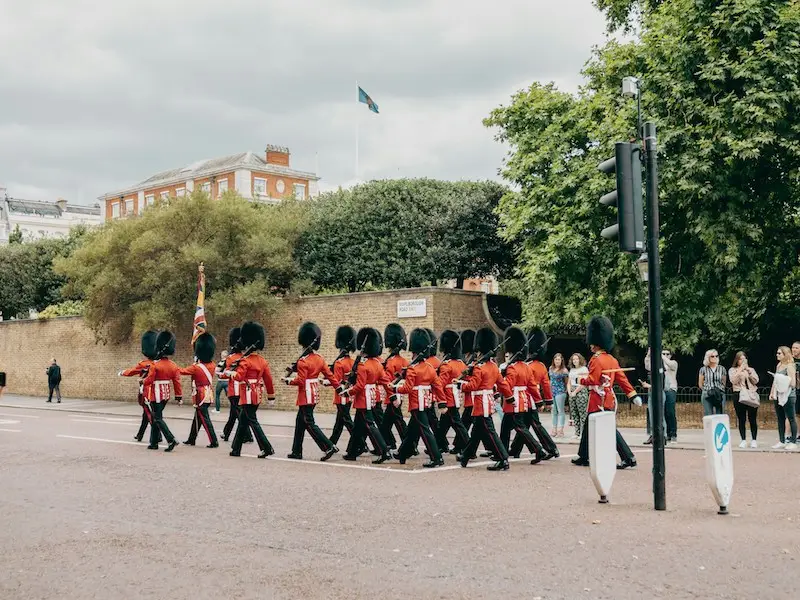
In the heart of London, one of the most captivating spectacles unfolds – London Changing of the Guard. Guard Changing, also recognized as Guard Mounting, is the renowned ceremony witnessed by millions annually at Buckingham Palace.
The ceremony of the Changing of the Guard at Buckingham Palace stands as a timeless tradition, symbolizing the formal handover of responsibilities between the Old Guard and the New Guard. In this guide, we will provide you with all the details about the ceremony, its origin, the regiments of foot guards, the schedule, and everything else you need to know to witness this iconic spectacle.
London Changing of the Guard – how it started?
For a whopping 520 years, elite soldiers have been standing strong as the guardians of the monarch, a tradition dating back to the days of Henry VII. Back in his time, he set up the Royal Body Guard as a permanent thing, and it’s been etched in history ever since. These top-notch Guards Regiments, founded in 1656 to look out for the exiled King Charles II, proudly stand among the revered veterans of the British Army. With crack officers and seasoned soldiers, they’ve left their mark on British military history, showing up in every major conflict since the 17th century.
Back then, the Changing of the Guard used to be a spectacle at the grand Palace of Whitehall, the Sovereign’s hangout in London until 1698. When the royal court shifted to St James’s Palace, the ceremony naturally moved there, becoming a bit of a tradition.
Even when Queen Victoria took the reins at Buckingham Palace in 1837, The Queen’s Guard still kept its post at St James’s Palace. A dedicated detachment, in true British style, carried on standing guard at Buckingham Palace—a tradition that’s kept going through the ages.
Nowadays, the Changing of the Guard happens with all its glory at Buckingham Palace. The Guard’s vibe depends on whether the Royal Standard is fluttering above the Palace, shouting out that the King’s in residence. When that regal emblem is up there, the number of sentries goes up—a little tip of the hat to tradition, a nod to the lasting ties between the monarchy and its loyal protectors.
The Old Guard and the New Guard
The Old Guard is made up of soldiers currently on duty, forming up in front of Buckingham Palace in their distinctive uniform, complete with a bearskin hat and a tunic bearing their regiment number. The New Guard, arriving from Wellington Barracks accompanied by a band, takes over from the Old Guard. They also wear unique uniforms, distinguished by the number of buttons on their tunics and the plume in their bearskin hats.
Regiments of Foot Guards
The guards at Buckingham Palace are usually chosen from one of the five regiments of foot guards within the Household Division. Each regiment boasts its distinctive uniform, emblem, and motto. Here’s a rundown of the regiments:
- The Grenadier Guards: founded in 1656 by King Charles II, recognized by their towering bearskin hats and the motto “Honi soit qui mal y pense” (Shame on him who thinks evil of it).
- The Coldstream Guards: established in 1650 by Oliver Cromwell, identified by their red-plumed band and the motto “Nulli Secundus” (Second to None).
- The Scots Guards: founded in 1642 by King Charles I, the official regiment of the Scottish royal family, distinguished by their Scottish kilts and the motto “Nemo me impune lacessit” (No one provokes me with impunity).
- The Irish Guards: established in 1900 by Queen Victoria, the official regiment of the Irish royal family, recognized by their shamrock and the motto “Quis Separabit” (Who shall separate us?).
- The Welsh Guards: formed in 1915 by King George V to represent Wales in the British Army, identified by their leek emblem and the motto “Cymru am byth” (Wales forever).
London Changing of the Guard – Schedule
London Changing of the Guard ceremony at Buckingham Palace occurs daily at 10:45 am and lasts around 45 minutes. The soldiers gather at St James’s Palace and Wellington Barracks from 10:00 am, marching towards Buckingham Palace accompanied by the band. Arriving early is essential for the best view of the ceremony. Keep in mind that London Changing of the Guard may be canceled on short notice, especially in rainy weather, and decisions can be made until 10:30am on the same day.
London Changing of the Guard – How to witness the ceremony?
To catch the London Changing of the Guard at Buckingham Palace, position yourself in front of the palace, where most of the ceremony unfolds. Alternatively, you can enjoy the spectacle from the Mall, the road leading to Buckingham Palace, or from the nearby St James’s Park.
Some useful tips:
Here are some handy tips for attending the Changing of the Guard ceremony at Buckingham Palace:
- Arrive early for the best view of the ceremony.
- Secure a good position and try to stay in the same spot during the ceremony.
- Bring water and snacks, as there might be some waiting before the ceremony.
- Be cautious with bags and pockets, as the ceremony attracts a large crowd, and a moment of distraction could be costly.
For more information check out the Household Website
London Private tours: a royal lens into tradition
As we delve into the majesty of London Changing of the Guard, a unique lens comes into focus – that of a private tour. Beyond the typical tourist experience, a private tour offers an exclusive perspective, unveiling the layers of tradition with a depth that transcends the ordinary.
Exclusive Insights: imagine having a dedicated guide on your private tour, unraveling the layers of history and culture woven into the ceremony. Beyond the surface spectacle, your guide provides exclusive insights into the significance of each movement, the historical context of the regiments, and the nuances that make this tradition a living, breathing entity.
Stories untold: one of the distinctive features of a private tour is the personalized narrative crafted by your guide. As the Changing of the Guard unfolds, your guide becomes a storyteller, weaving tales of historical moments, royal anecdotes, and insider knowledge that brings the ceremony to life in a way that goes beyond the scripted narrative presented to the public.
Beyond the crowds: while the public jostles for vantage points, a private tour offers an intimate viewing experience. Imagine standing at exclusive vantage points, away from the crowds, allowing you to appreciate the ceremony with unobstructed views. The grandeur of the Bearskins, the precision of the drills – every detail becomes more pronounced when witnessed in the comfort and seclusion that a private tour provides.
Your pace, your comfort: sauntering through tradition!
The bustling crowds that typically accompany London Changing of the Guard can be overwhelming. However, on a private tour, the experience unfolds at your pace. With your guide navigating logistics and leading you through carefully chosen routes, you can saunter through the ceremonial atmosphere with ease.
Go to Urban Saunter tour!
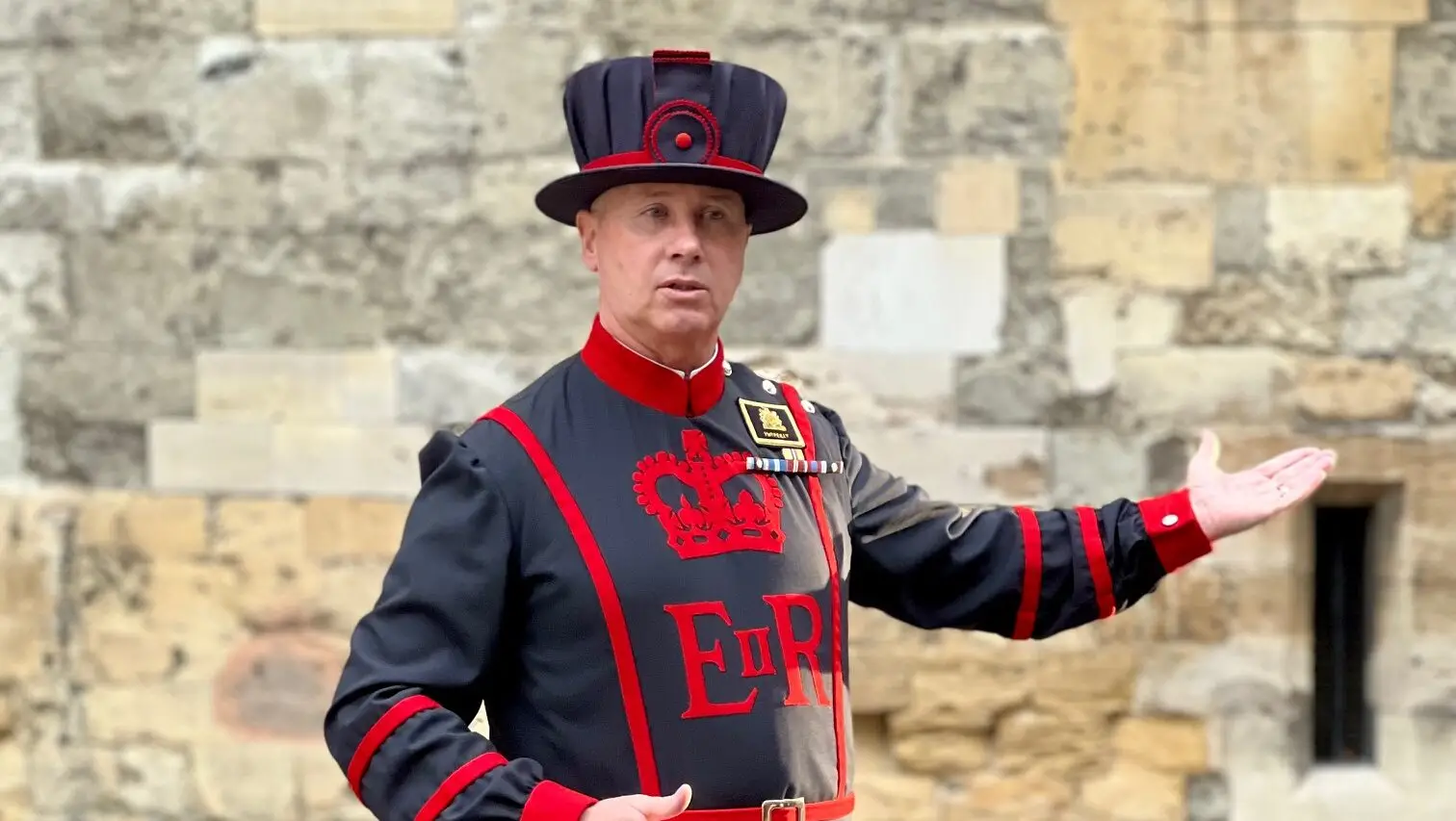
Best Seller
Be the first in line to explore the crown jewels and witness the opening ceremony at the Tower of London. Take part in an adventure that will see you travel from the old City regal city of Westminster.
Book With Extra Flexibility
Choose new departure dates if your plans change.
Reach out to us anytime via online chat, phone or email.
Get credit for future trips if you need more time to decide.
Change to a different tour run by the same tour operator.

